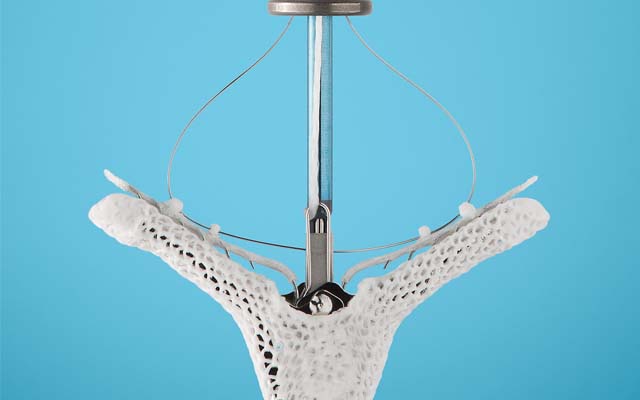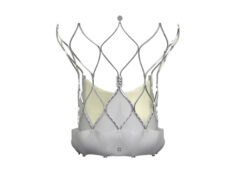
Abbott has received approval from the US FDA for a next-generation version of its MitraClip heart valve repair device used to reduce mitral regurgitation. A press release reports that the transcatheter clip-based therapy, now on a third-generation of product innovations, has been used to treat more than 65,000 patients worldwide over the last 10 years.
The next-generation MitraClip system is designed to provide cardiologists with advanced steering, navigation, and positioning capabilities for the clip, making it easier to use in difficult anatomies. The enhanced system is aims to allow for more precise placement during deployment, resulting in more predictable procedures, and additionally offers a second clip size with longer arms that expands the reach of the clip-based device. The additional clip size is designed to help doctors treat patients who have more complex anatomies when repairing the mitral valve.
Abbott received CE Mark for the next-generation device earlier this year, allowing for sale of the devices in the European Union and other countries that recognize this regulatory designation. Francesco Maisano (UniversitätsSpital Zürich, Switzerland), who was an early implanter of MitraClip, comments: “Physicians rely on MitraClip as an alternative to surgery for patients who aren’t surgical candidates and may need treatment to relieve their symptoms or to survive. The enhanced MitraClip design allows for even more precise navigation, accuracy, and stability during valve repairs, which may be important when treating people with more complex or advanced valve disease.”
Prior to the availability of MitraClip, people who were not eligible for the standard-of-care surgery to treat their mitral regurgitation could only manage their symptoms with medications that don’t stop the progression of the disease. Left untreated, the condition leads to a variety of life-altering symptoms and severe complications, and may ultimately lead to heart failure and death.
Michael Dale, vice president for Abbott’s structural heart business, comments: “Abbott engineers designed these enhancements based on feedback from doctors to improve device delivery and to treat more types of cases and anatomies. We are committed to helping people with mitral regurgitation return to living their best lives, and these advances will enable doctors to treat even more patients without surgery.”
Abbott recently began enrolment in the MitraClip EXPAND clinical study, a prospective study evaluating the safety and performance of the new MitraClip system in a contemporary real-world setting. Saibal Kar (Smidt Heart Institute, Cedars-Sinai, Los Angeles, USA) treated the first patient enrolled, and is the lead investigator of the study. EXPAND will enrol approximately 1,000 patients in more than 50 centres across the USA and Europe; interim results from the study are expected later this year.










